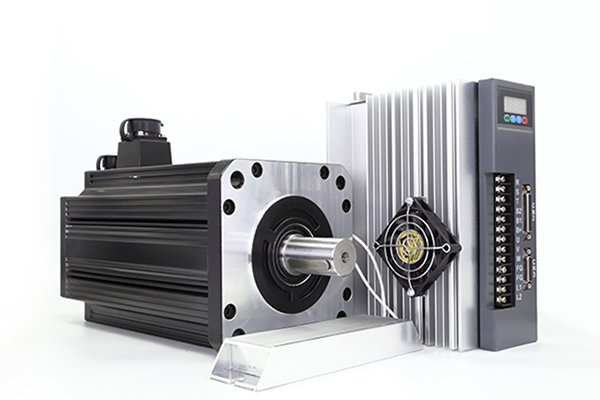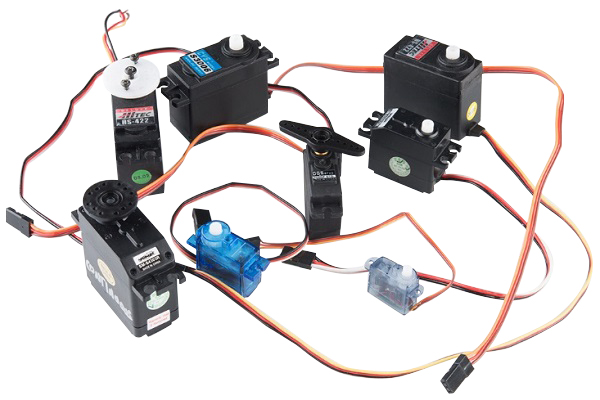What Causes Servo Motor Overheating?
A servo motor is a type of rotary or linear actuator that allows for precise control of angular or linear position, velocity, and acceleration. Selecting the right servo motor can be a challenging task, and finding a motor that meets your speed, torque, and power requirements is not enough. There are many factors to consider when selecting a motor that meets your application requirements. We will provide you with some checks to prevent motor overheating and save you time and money on motor replacement. If you are currently experiencing motor overheating problems, we hope this article will help you determine the cause.
There are many factors that can cause motor problems, but these are 6 reasons why industrial servo motors overheat:

One way to keep motors cool is to minimize the overloads they handle. When considering the specifications of the task involved, match the appropriate motor to the necessary load.
There are many factors that can cause motor problems, but these are 6 reasons why industrial servo motors overheat:

- Motor too small for use. It is important to make sure that the high and low temperature servo motors you use are sized for the environment and duty cycle of their application. Motors that are too small will not dissipate heat fast enough and will overheat.
- High ambient temperature. A servo motor may overheat if it is operated in a warmer environment than it was designed for, as the ambient temperature will make it more difficult for the motor to cool properly. Also check the insulation level of the motor.
- Continuous operation intermittent load motor. It is important to run motors that are rated for intermittent duty equal to or less than their duty cycle. In order for a motor to operate at its rated performance specifications, it needs time to cool completely between cycles. If the motor is run more frequently than expected, the motor will still get hot and will get hotter with each cycle, eventually overheating the motor.
- High-voltage or low-voltage power supply. The power supply may be insufficient due to current consumption. In order to overcome load or inertia at standstill, the motor will run at too high a current under load. Incorrect voltage will make the motor work harder and may cause the servo motor to overheat.
- High altitude. Servo motors are less efficiently cooled at higher altitudes due to thin air. If you are located at a higher altitude of 1000 meters (3300 feet) above sea level, contact the manufacturer and make sure your motor is rated accordingly.
- Ventilation holes blocked. This may seem obvious, but the vents on the servo motor must be open to allow heat to escape. Check and make sure nothing is blocking them.
One way to keep motors cool is to minimize the overloads they handle. When considering the specifications of the task involved, match the appropriate motor to the necessary load.
- Test. Testing the servo motor as part of a routine maintenance program also reduces the possibility of failure due to overheating. Do not judge the temperature of a motor by simply touching the outside of the motor with your hand. Touch, in general, is not a good sensor; what may seem hot to you may not be to someone else.
- Maintenance program. This is not to say that there is no need to worry about motor temperatures. Use proper testing methods to find hot spots within the motor windings, hidden hot spots that reduce the life of the motor. Make sure your motor is properly protected. This protection includes thermostats and overload protectors. A good maintenance program should be in place, and these devices should ensure that the servo motor is running at a temperature that will not damage it. Motors are usually one of the most expensive assets in a plant. With proper maintenance of servo motor and common sense, it becomes easier to extend their useful life.
Post a Comment:
You may also like:

Category
Featured Articles
What is a Servo Motor?
 There are some special types of application of electrical motor where rotation of the motor is required for just a certain angle ...
There are some special types of application of electrical motor where rotation of the motor is required for just a certain angle ...
 There are some special types of application of electrical motor where rotation of the motor is required for just a certain angle ...
There are some special types of application of electrical motor where rotation of the motor is required for just a certain angle ...How to Select the Suitable Power ...
 It's important to consider the unique demands of a motion control application when selecting a power supply. During ...
It's important to consider the unique demands of a motion control application when selecting a power supply. During ...
 It's important to consider the unique demands of a motion control application when selecting a power supply. During ...
It's important to consider the unique demands of a motion control application when selecting a power supply. During ...What are the Types of Servo Motor?
 There are some special types of application of electrical motor where rotation of the motor is required for just a certain angle ...
There are some special types of application of electrical motor where rotation of the motor is required for just a certain angle ...
 There are some special types of application of electrical motor where rotation of the motor is required for just a certain angle ...
There are some special types of application of electrical motor where rotation of the motor is required for just a certain angle ...How to Maintain Servo Motor?
 Servo motors play a crucial role in various industries, serving as precision control devices in applications ranging from ...
Servo motors play a crucial role in various industries, serving as precision control devices in applications ranging from ...
 Servo motors play a crucial role in various industries, serving as precision control devices in applications ranging from ...
Servo motors play a crucial role in various industries, serving as precision control devices in applications ranging from ...How to Test Servo Motor?
 Servo motors are devices that convert electrical signals into mechanical motion and are widely used in industrial automation, ...
Servo motors are devices that convert electrical signals into mechanical motion and are widely used in industrial automation, ...
 Servo motors are devices that convert electrical signals into mechanical motion and are widely used in industrial automation, ...
Servo motors are devices that convert electrical signals into mechanical motion and are widely used in industrial automation, ...